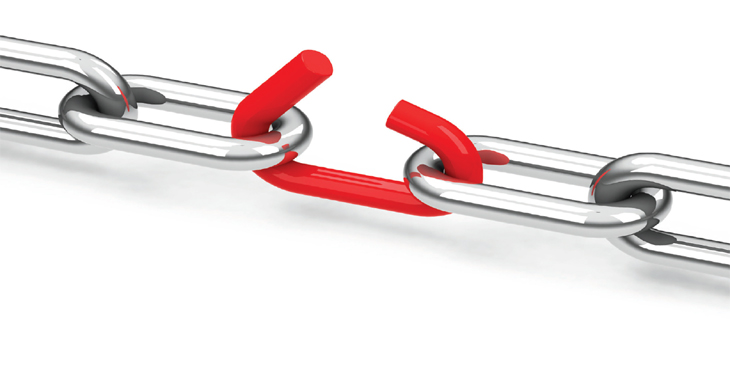If you are buying or selling a house now there’s a good chance you’ll be part of a chain.
Do you understand what this means? Or how frustrating it can be?
Let me explain.
Let’s say you are a first time buyer and you come across the perfect property. You get your finance approval, succeed in the bidding war, and secure the property by paying a booking deposit to the auctioneer.
Once the contract is issued to your solicitor, and you’ve received your loan offer and had a structural survey carried out, you are anxious to see things progress to completion and handover of the keys.
Then you discover the effects of being in a chain.
Because once you sign the contracts things appear to grind to a halt.
You ring your solicitor every day asking for “any news?”, but the answer is always the same: “afraid not”.
You’ve no idea why. But soon you discover the reason: you’re in a chain!
This means that the people you are buying from-let’s call them Harry and Jenny-are themselves buying another property. And until they have secured the other property, Harry and Jenny will not return signed contracts to your solicitor.
Because if they do, they will be legally committed to selling their home to you. And if their proposed new purchase falls through they will be homeless.
Harry and Jenny are trying to buy a 4 bed house in Mullingar, ideal for their growing family of 4 kids.
So, Harry and Jenny will not return signed contracts to your solicitor until their solicitor receives signed contracts from the solicitor acting for Mick and Geraldine, the owners of the 4 bed in Mullingar.
Mick and Geraldine, too, are moving on. Their family has grown up and moved away and the big property they live in in Mullingar is too big for them, Mick is fed up cutting a quarter acre of lawn every weekend, and they want to move into something smaller and more manageable.
Mick and Geraldine are trying to buy a 2 bed apartment in Islandbridge. But the developer of the islandbridge development went into receivership when the stuff hit the fan after the economy collapsed in 2007/2008, and the receiver is still working his way through the developer’s assets.
The receiver will need the written approval from the lending institution that appointed him, so Mick and Geraldine will be waiting on contracts to issue, with the appropriate approval, and become binding before they can sign the contracts for the sale of their property to Harry and Jenny.
And until that happens, Harry and Jenny’s solicitor cannot return contracts to your solicitor.
This is a basic property chain, and they are becoming more evident in Ireland in 2017 with the increased levels of activity in the property market. The drying up of property supply also means that the chain is probably more likely to be encountered because there is nowhere for vendors to rent for 6-12 months. Therefore, unless and until they have secured a suitable property, they are not inclined to move.
Like any chain it is only as strong as the weakest link. For example, if the receiver is unable to get the letter of approval from his lender to sell the Islandbridge property, Mick and Geraldine will be staying put for the moment.
Obviously this means that Harry and Jenny won’t be going anywhere, they will be staying where they are, and you will not see a signed, binding contract from them anytime soon.
None of what I have written about above deals with the actual problems that can arise when it comes to completion day.
You as purchaser will need to ensure that your solicitor has the funds to complete the transaction. But the vendors of the property you are buying, Harry and Jenny, will need your money to complete their purchase from Mick and Geraldine.
And Mick and Geraldine will need Harry and Jenny’s money to purchase from the receiver of the bust developer.
Throw in the desire of one or more parties to vacate their old house and move to their new house on the same day and it is easy to see how taut and fraught the chain can become.
Being part of a property chain like this can be extremely frustrating and stressful.
At the outset you should make enquiries early in your negotiations because you can avoid it if you discover the vendors of the property you are buying from are themselves dependent on securing a property now, and their sale to you depends on that.
Unfortunately I have seen a few situations where it is only after a purchaser signs a contract in good faith that they are then told that they are in a chain.
It’s a bit late finding out then, quite frankly, and strikes me as a little unfair.
